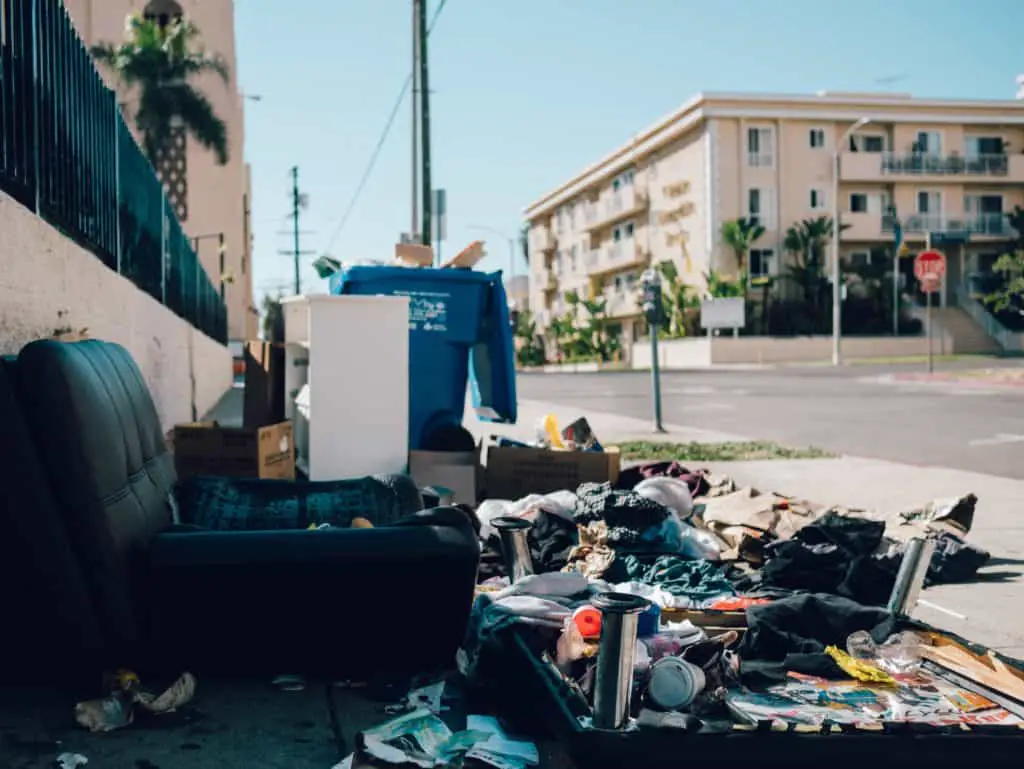
For a landlord, there is little that makes their heart sink than when they walk into an apartment after someone has moved out and it is an absolute disaster. Human beings can be dirty creatures and not everyone has that OCD mechanism inside of them that inspires cleanliness.
But, can a tenant be evicted out of an apartment for it being too messy? Where is the line with that, and what are the tenant’s responsibility? Do they have the right to live how they want because they are paying rent, or must they have some set of rules by which they have to adhere?
The answer is “Yes” if the apartment crosses the line from just being a bit messy to a full-on Health Hazard.
Tenants must take care of the apartment and keep it clean.
In virtually every single lease agreement (or at least the competently written ones), there is a provision included that the tenant must take care of the property to maintain habitability. This would be along the same lines as, “Do not put holes in the walls” and “Do not destroy the Appliances.”
However, where the line for not destroying the appliances is fairly clear, the line for taking care of the property in regard to cleanliness can be much more subjective.
In the lease, there will be language that makes it essential for the tenant to take care of the property, not if it was their own, but because it isn’t their own, and they have neighbors in close proximity that can be affected by it.
What makes it Uninhabitable?
Many times, the first warning sign that a tenant may have a problem with cleanliness is when another tenant reports a smell outside their own apartment. Unfortunately, what’s causing this smell isn’t due to being “messy” it’s due to downright filthy, and it must be brought under control.
Some of the main things that cause it to be a hazard are:
- Bugs or evidence of bugs in the apartment
- Pet feces around the apartment or litter that is not in the litterbox
- The smell of cat or dog urine in the apartment
- Noxious odor emanating from anyplace in the apartment
- Piles of dirty dishes in the sink or other places around the unit
- Evidence of mold on walls or sinks or showers
- Evidence of smell or bugs that are traveling through the HVAC to other apartments
- Run of the mill “Hoarding” is also a prime condition for attracting vermin
Difference Between Messy and Uninhabitable?
The primary difference between Messy and Uninhabitable is this………Has the apartment become a health hazard?
If there is a smell emanating from an apartment, enough so that another tenant is complaining about it, then more than likely the problem is more than just clothes on their bedroom floor.
The problem is that this filth can ruin carpets, entire kitchens, and bathrooms and attract vermin. The tenant may not care about any of this, but the landlord for sure does, and so do the neighboring tenants at the facility.
The landlord can inspect the apartment, specifically if they give a 24-48 hours’ notice in writing. If the landlord or manager comes and does a walk-through and finds any of these things that would make the apartment uninhabitable, they will no doubt want a change to take place immediately.
Expect a written notice that lists everything they are expecting to change to be delivered to your apartment shortly.
Additionally, they may require you to have your apartment fumigated or professionally cleaned, including the carpet, to make sure there are no bugs, fleas, mold, or other hazards that have been taking up residence in the apartment. The cost of this cleaning is going to either be directly charged to you or added to your monthly payment in installments.
At worst, they are simply going to give you a “Notice to Quit”, which is the first step in the process of eviction.
When it Affects Other Tenants
When uncleanliness starts to affect other tenants, the situation has grown out of control. Not only is this inconsiderate and a hazard to them, but it is also a hazard to whoever is living in the apartment, as they are living and breathing that severe level of filth a good portion of each day.
It isn’t your landlord being your mom, it behooves everyone if that situation is cleaned up.
A person can’t have an apartment that negatively affects the health of another tenant. The neighbors themselves can actually petition the city, citing the health hazard they are living next to and they can come in and officially give them notice to clean up their residence.
Courts and judges are also not going to be very lenient in this situation as you are not just causing a hazard to yourself, but you are causing a hazard to other people.
The best solution to this is to not let your apartment look like something you see on an intervention show on tv.
